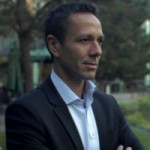When I am invited to “teach leadership” to managers in corporations, I use the first few minutes to address the issue of where and how one learns to lead—and what gets in the way. I usually begin with a confession and a question.
My confession is always the same. That I am hoping to learn something from our encounter, brief as it may be, that I will remember and use. This is what I believe good leaders and good teachers have in common—the commitment to keep learning as they practice.
I have never met a manager who disagrees. Good leaders, they tell me, like good teachers, raise tough questions and make others feel stretched, empowered, inspired. Mediocre ones issue commands and make others feel overlooked, bored, underutilized. Continue reading






 by Gayle Hilgendorff
by Gayle Hilgendorff 
 by Carolyn O’Hara
by Carolyn O’Hara